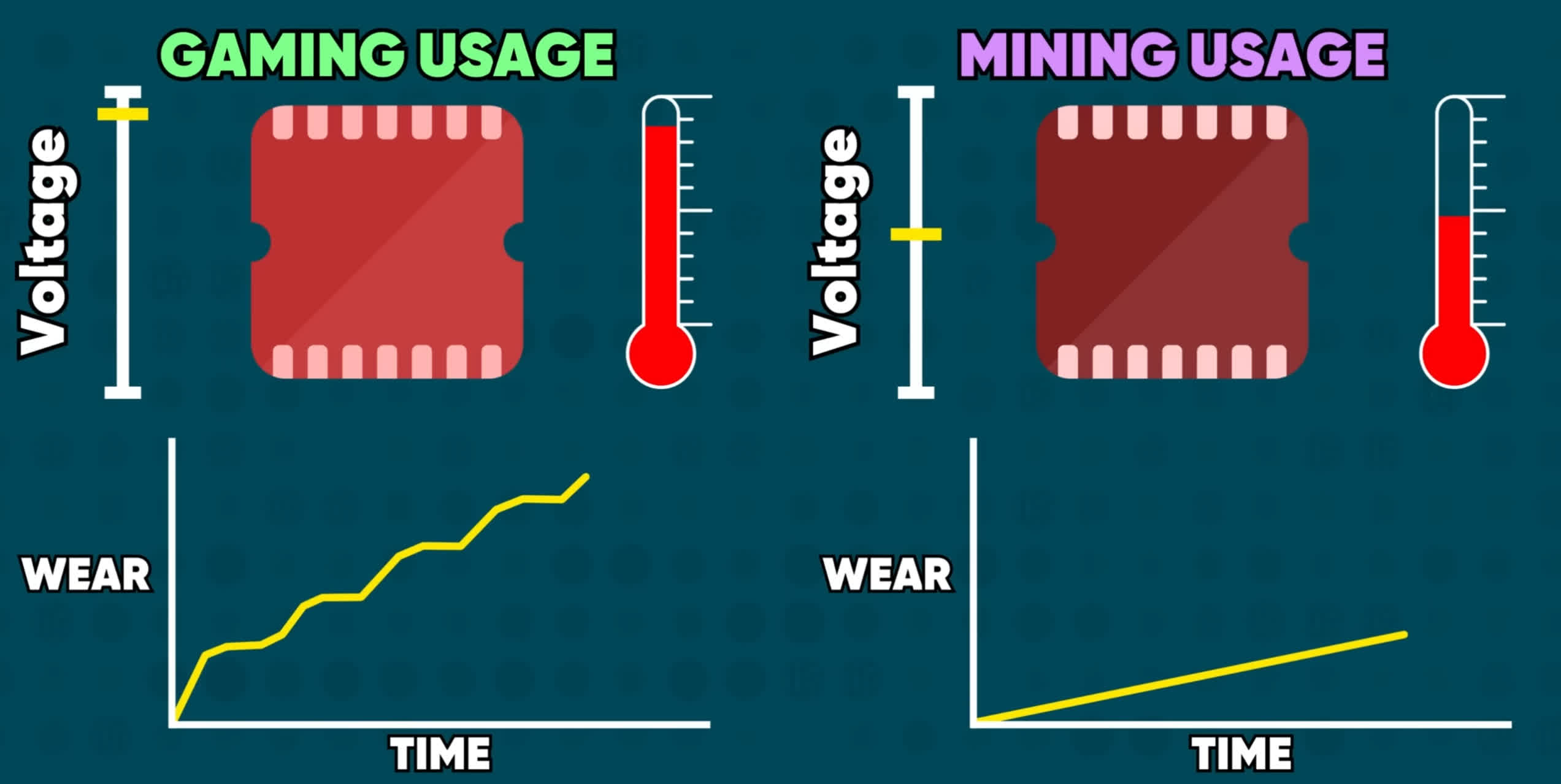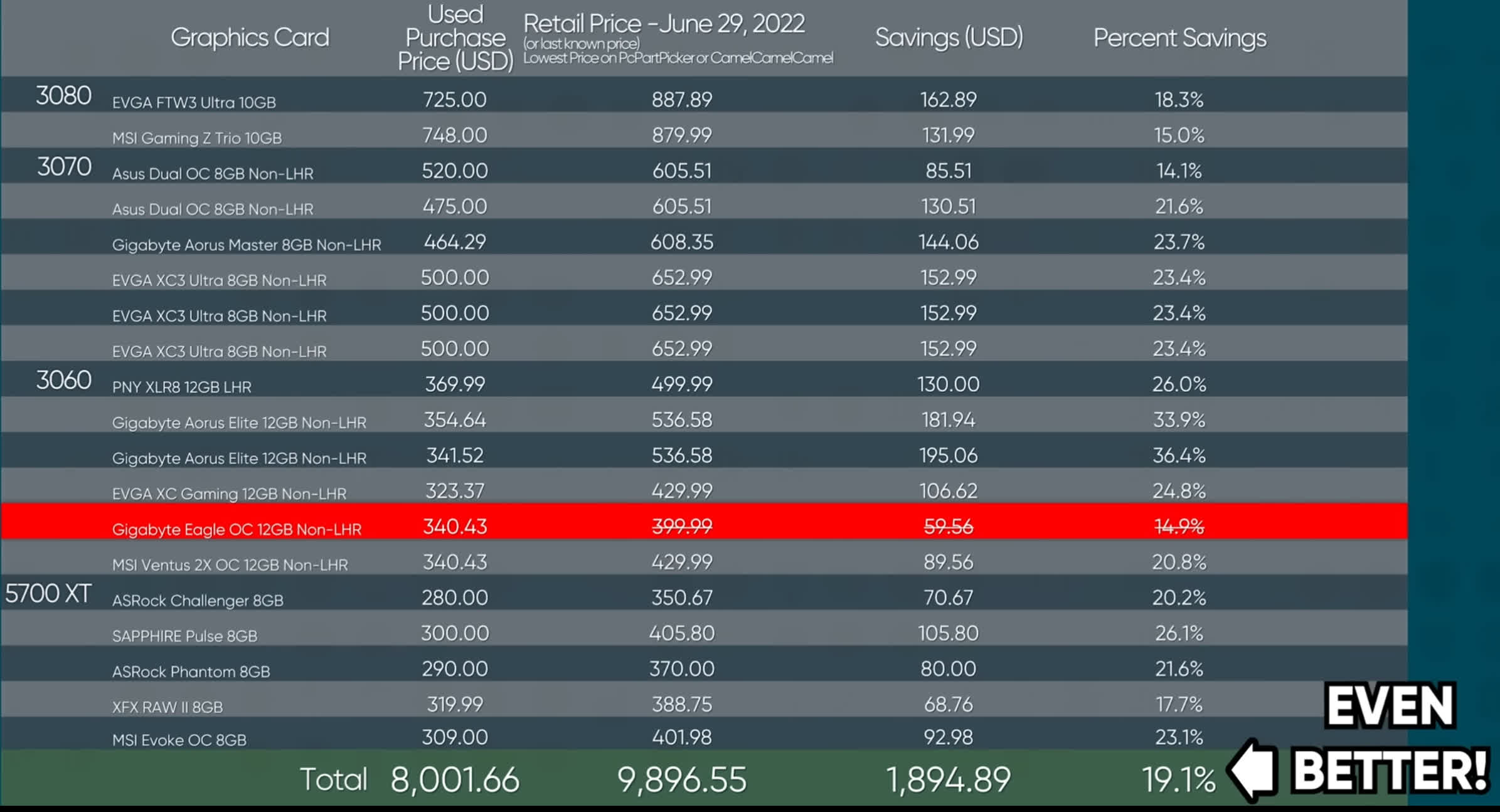In context: It's an argument that has been raging for years: is buying a second-hand graphics card worth the risk when it could have been used extensively for crypto mining? Probably the most famous of all the tech YouTube channels, Linus Tech Tips, has long said that former mining cards don't automatically suffer from performance issues, and could even be a better buy than those that were used exclusively for gaming. Now, Linus might have proven this claim.
Tech Tips' Linus Sebastian has long been a passionate advocate for buying second-hand graphics cards. It's an especially appealing prospect in an era when Nvidia is often referred to as the scalper. But fears that auction-site cards might have been used 24/7 for mining put many potential buyers off—there have been plenty of reports of these cards being worked close to death. Manufacturer Palit previously advised customers to avoid them as its independent tests proved the GPU's performance is reduced by about 10% after almost a year of mining use.
To try and confirm what effects mining has on cards, Linus bought 19 second-hand models last year that at some point were desirable for mining and hard to find for gaming; a mix of AMD Radeon 5700s, and Nvidia RTX 3060s, 3070s, and 3080s. These were tested against lightly-used GPUs from the channel's own stock.
Only two of the 19 cards tested had any noticeable issues: a Gigabyte Eagle RTX 3060 OC and a Sapphire Pulse RX 5700 XT. The Nvidia card's clock speeds were lower than normal due to it reaching temperatures over 100C and thermally throttling. The Sapphire Pulse didn't experience substantially lower clock speeds on Kombustor, and both the temperatures—it was the coolest out of all the 5700 models—and gaming performance were unaffected, so the AMD card could have had a reduced power target only visible in MSI's program.
The gaming tests showed little variation between the cards, all performing as they should. Interestingly, the control GPU's 1% lows were lower than the mining models. Linus notes that the heating and cooling cycles and the higher clock speeds of gaming-only cards cause more damage to a GPU than what you would see in cards used only for mining.
It was also discovered that the Eagle OC's VRAM performance had deteriorated substantially, making this the only one of the 19 cards Linus suggests returning for a refund—or using eBay's buyer protection policy.
How much Linus saved compared to buying the cards new
Linus does make some good points, and the results are pretty eye-opening. The only caveats to the tests are that 19 cards isn't a huge sample, and while they're more than likely to have been used for mining at some point, this isn't 100% certain.
Not all mining cards are going to be safe, of course. Last year brought news of Vietnamese cryptocurrency miners preparing used graphics cards for resale by washing them with a high-powered jet nozzle. More recently, there was a story of miners trying to deceive customers by painting over the cards' memory before resale, making their wear-and-tear appear less extensive.
Ultimately, the video should give gamers more confidence when buying a second-hand card. It seems those used regularly for gaming are just as, if not more, likely to have problems compared to those used for mining.
https://www.techspot.com/news/97502-linus-tech-tips-shows-buying-second-hand-graphics.html

